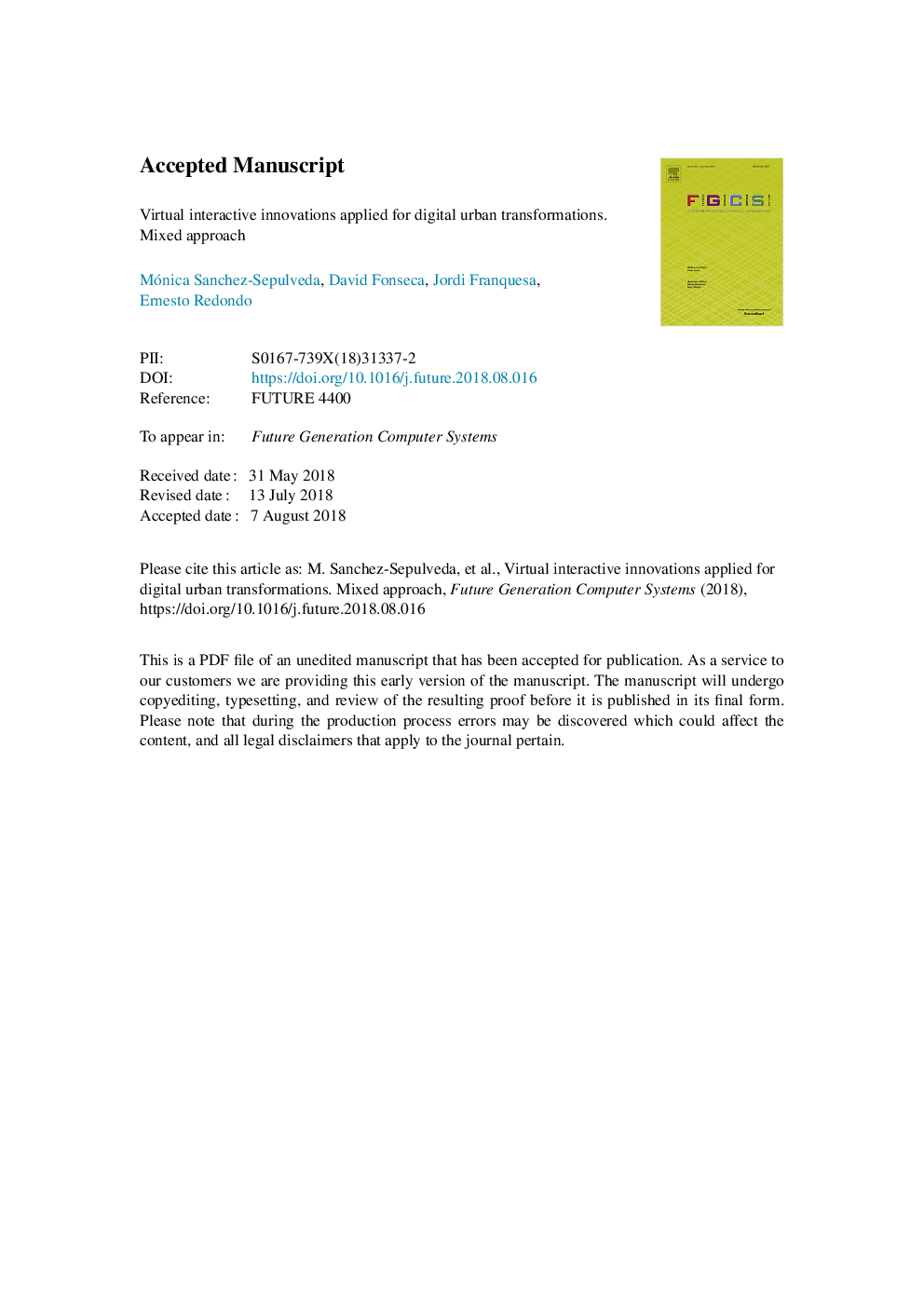| Article ID | Journal | Published Year | Pages | File Type |
|---|---|---|---|---|
| 11030127 | Future Generation Computer Systems | 2019 | 30 Pages |
Abstract
The cities in which we live are changing rapidly, presenting the scenery to debate future visions of transformative designs and its impact on the city. In order to take advantage of the changes and opportunities offered by the inclusion of digital technologies, an accommodation of the digital transformation into the visualization of Urbanism is required. It is a challenge for organizations and society to question the status quo and experiment often. The discussion about the increasing integration of digital technologies in urban spaces involves a number of questions relating to the complex processes of transformation that impact cities, like economic, social, political, and environmental. The main goal of the paper is to present the use of Digital Transformation in processes of urban design through technological innovation in which the diverse forms of active citizenship operate from below as agents of innovation, inclusion and social development. The results showed that it is possible to empower Digital Transformation - as for example the use Augmented and Virtual Reality (AR/VR) systems in collaborative urban design - to improve public motivation, implication, and satisfaction in urban decision-making processes.
Related Topics
Physical Sciences and Engineering
Computer Science
Computational Theory and Mathematics
Authors
Mónica Sanchez-Sepulveda, David Fonseca, Jordi Franquesa, Ernesto Redondo,
